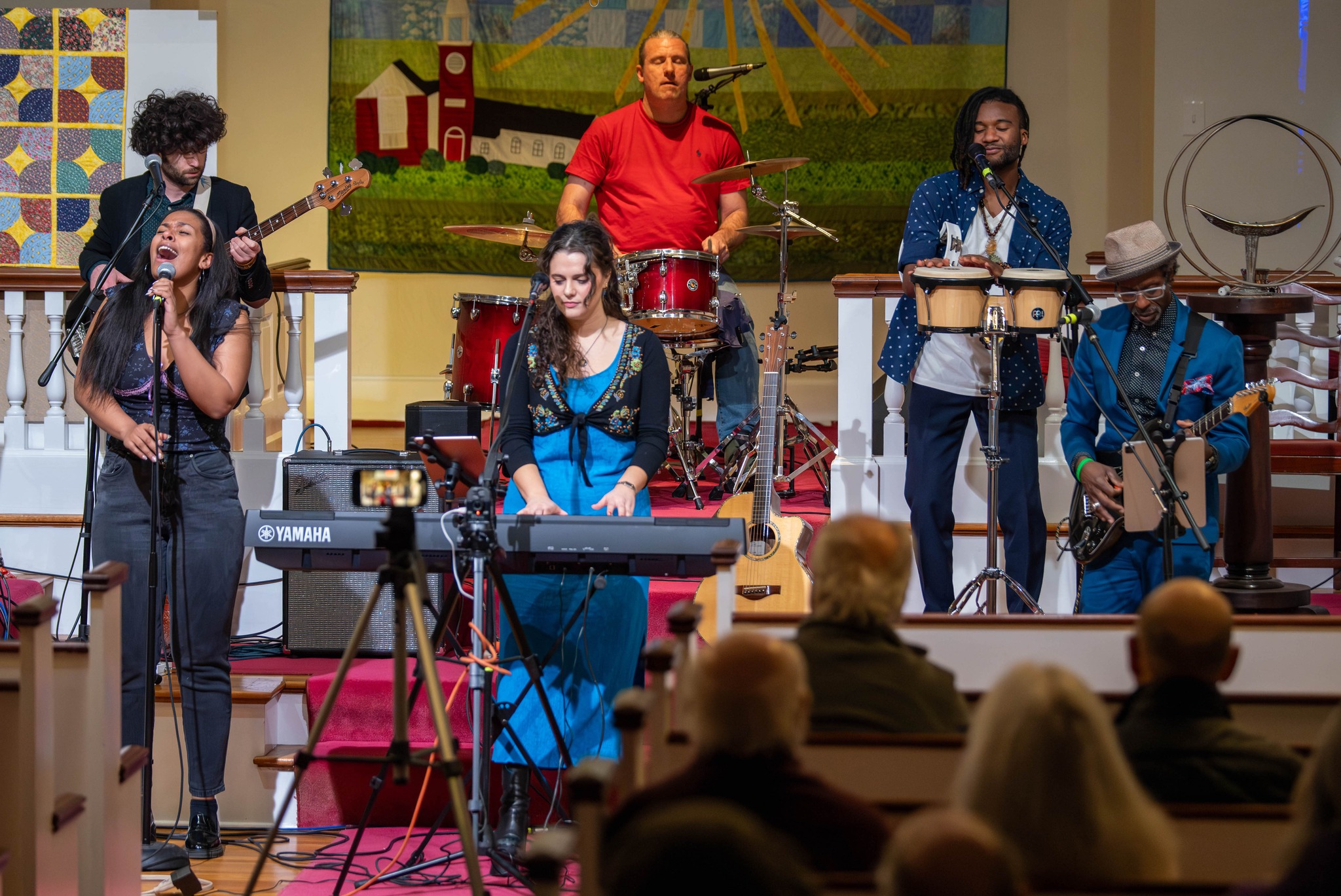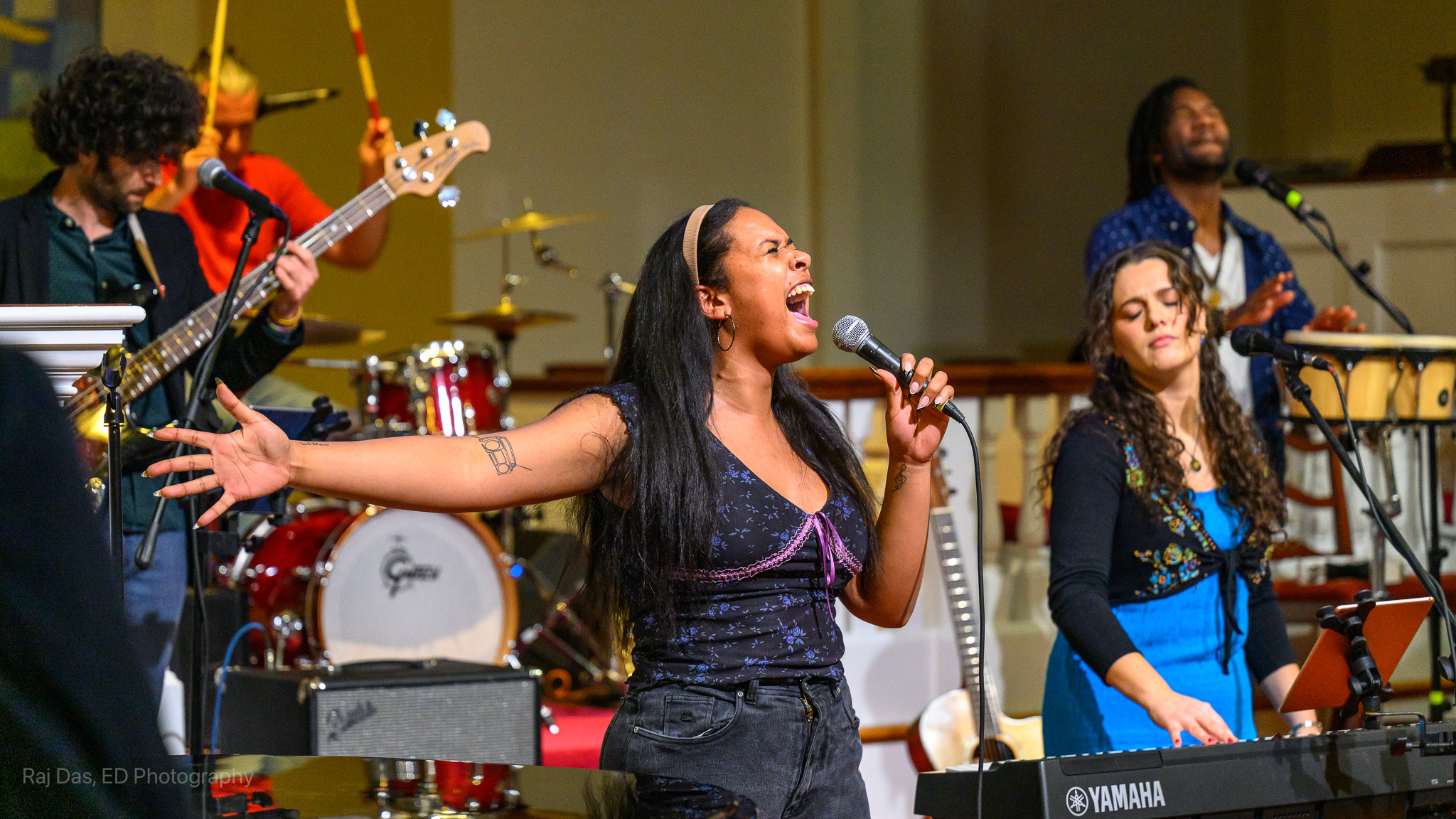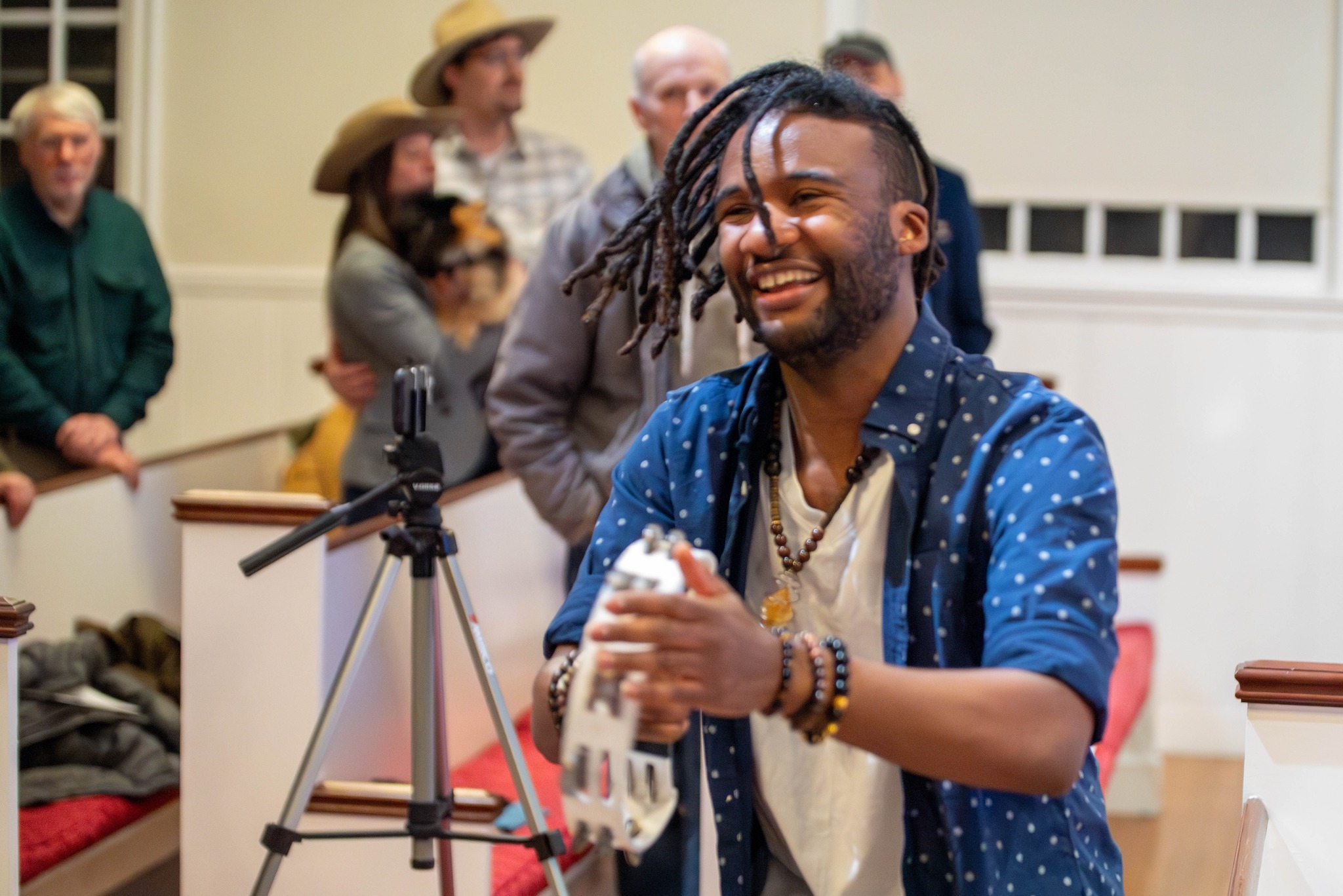The Black Legacy Project Reflects On Black American Experience Through Music
By Ellen Putnam

The Black Legacy Project touring band
Left to right: Michael Aaron, Bree Nicola, Katherine Winston, Jakob Schaffer, Trey Carlisle, and Bryan House
Photo Credit: Paul Locke
On Sunday evening, the Opening Doors Project presented the Black Legacy Project’s touring band in a concert of music centered the Black American experience. The band performed a mix of original songs and reimaginings of classic songs to express the pain and struggle of the fight for civil rights, and the hope and joy of working together in community.
The Black Legacy Project is part of Music in Common, an organization that fosters conversation and connection among diverse groups through music. The Black Legacy Project identifies itself as “a musical celebration of Black history to advance racial solidarity, equity, and belonging.” It was launched in the Berkshires in 2021 with a residency where Black and White musicians and community members came together to discuss issues of race, record reimaginings of classic songs, and write new songs.
The Berkshires residency was followed by six others across the country - in Atlanta, Los Angeles, the Mississippi Delta, Denver, the Arkansas Ozarks, and Boise - in what Music in Common founder and Black Legacy Project co-director Todd Mack called “a snapshot of the American experience.” The touring band performs some of the music that came out of these residencies in concerts around the country.
This week's concert in Melrose was hosted by the Opening Doors Project. The Opening Doors Project was founded by Melrose residents Alastair Moock and Stacey Babb and holds many of its concerts, including Sunday’s, at the Melrose Unitarian Universalist Church. (Last week, we spoke with Alastair Moock about the Opening Doors Project. You can read the conversation here.)

Bree Nicola, center
Photo Credit: Raj Das, ED Photography
“This is different for us,” said Moock as he introduced the group. “Usually we have one or two people, sometimes three. But tonight, you’ll get to experience the full power of this band, once we unleash them.” He noted that he and Babb had first heard about Black Legacy Project as a group that was doing parallel work to what they were doing with the Opening Doors Project. “They were doing a concert in Malden. We went, and we were blown away by the size and ambition of the project.”
The concert opened with the screening of part of a docuseries focused on the Black Legacy Project’s Berkshires residency. At that residency, musicians reimagined classic protest songs like “Strange Fruit” and “We Shall Overcome” and also wrote new songs, including one set to the words of W.E.B. DuBois’ poem, “My Country ‘Tis of Thee.” “There’s an incredible Black history in the Berkshires,” said Black Legacy Project co-director Trey Carlisle. “People wouldn’t necessarily expect it, but there are a lot of direct ties to the local community.”
Following the film screening, the touring band came onstage and opened the concert with “A Change is Gonna Come.” From there, they played a mix of original songs and covers of familiar song in a variety of styles. Some standouts included a cover of Bessie Smith’s classic “Poor Man’s Blues” and an upbeat arrangement of “Lift Every Voice and Sing,” often called the Black national anthem, that concluded in a wild, joyful chorus.

Trey Carlisle, center
Photo Credit: Paul Locke
But the most stunning moment of the evening came when the band divided into two groups, and the three Black members gathered around the piano to perform a slow, anguished rendition of Bruce Springsteen’s “American Skin (41 Shots).” The song was released in 2001 about the killing of unarmed Amadou Diallo by New York City police officers. In the years since, Springsteen has dedicated performances of the song to Trayvon Martin, Freddie Gray, George Floyd, and Breonna Taylor.
Vocalist Bree Nicola delivered a powerful performance, singing with tears visible on her face. At the end of the song, as the three White members of the band took to the stage to perform their own version of Leon Bridges’ “Sweeter,” which was written in memory of George Floyd, vocalist Katherine Winston remarked, “we’ve been on the road for a month and that never gets easier to hear.” The band reunited for the original song, “Better,” and Nicola and Winston sang together, bringing back a feeling of hope for both the musicians and the audience.
The set ended with the audience joining the band for “We Shall Overcome,” which started as an a cappella singalong and ended with joyous clapping and dancing.
At the end of the performance, Moock asked band members: “How are you moving through the world right now, carrying this immense weight, with this kind of work in the crosshairs of the new administration? Your joy is clear and irrepressible - what’s keeping you going?”
Band members talked about the power of community, love, and friendship, and the connection to the past that these songs - especially those that come from the Civil Rights Movement of the 1960s - provide. “Today feels like the same kind of national climate that these songs were written in,” Carlisle reflected, “where this kind of work is not really being supported. Knowing that what we’re doing is nothing new gives me hope. We can take inspiration and wisdom from these songs.”
“The painful part of this work is that these songs still ring true today,” he went on. “But that’s also the hopeful part - that we can learn from the wisdom of the past. This isn’t a sprint, and it’s not a marathon - it’s a relay.”

Follow Us: